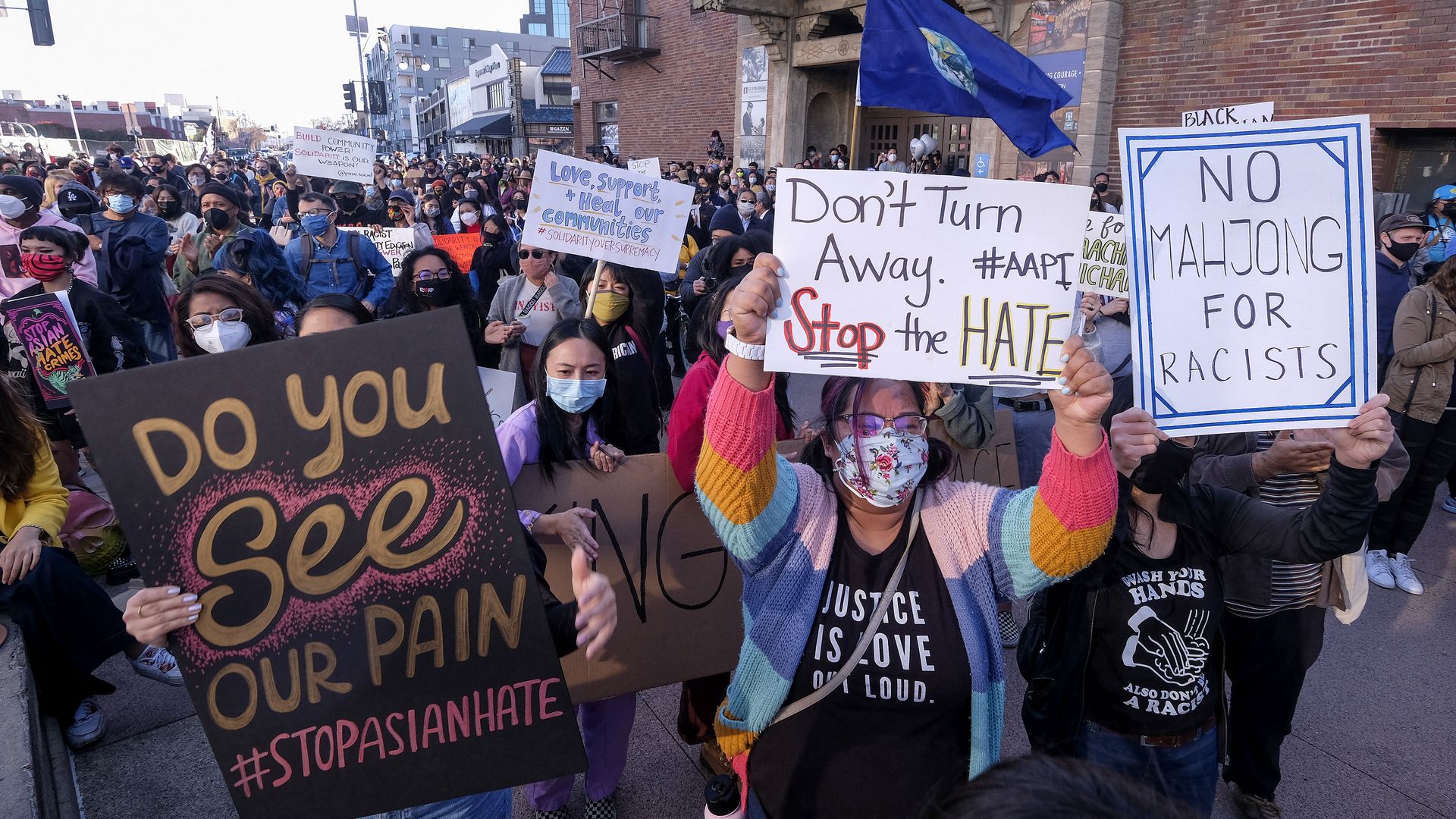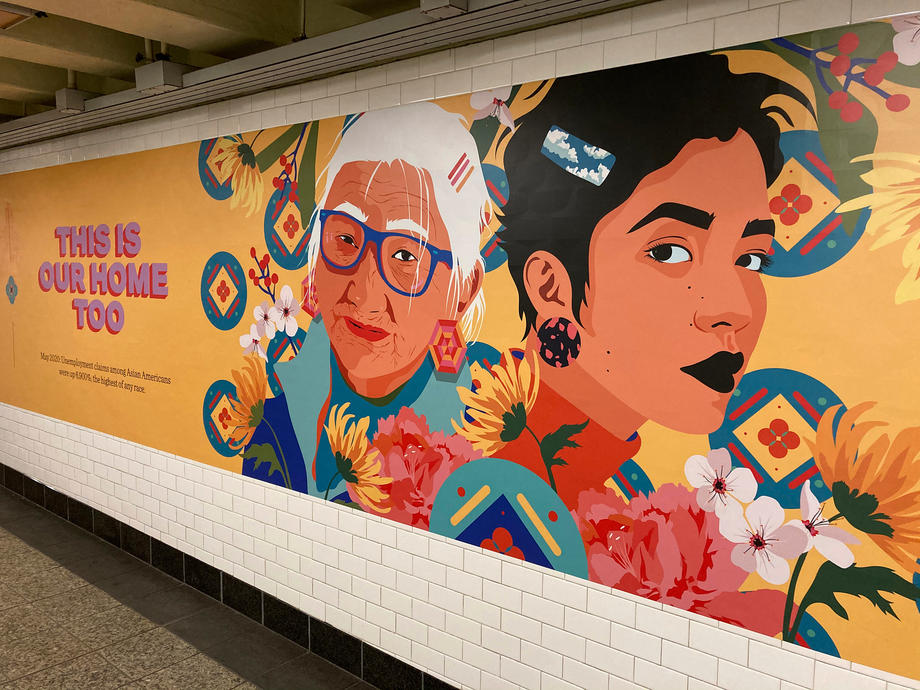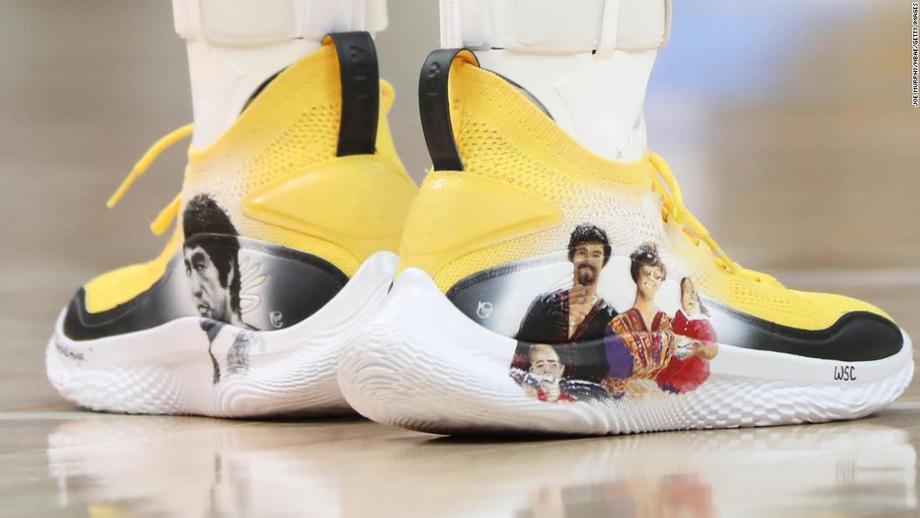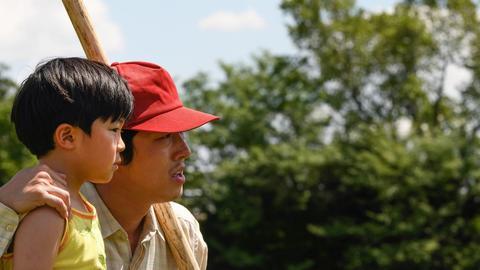"Over the past few days," wrote Olivia Munn on February 10, "I’ve found myself at a loss for words at the rise of anti-Asian hate crimes. The racist, verbal and physical assaults have left my community fearful to step outside. These hate crimes have spiked since COVID and continue to increase even though we ask for help, even though we ask our fellow Americans to be outraged for us, even though we ask for more mainstream media coverage. To simply exist as a minority in this country is seen as a protest to some. We need help amplifying the outrage. We need help to feel safe in our country. We need help to be safe in our country."
While she felt at "a loss for words," Olivia Munn's words are everything. Writing on Instagram, before the murders in Atlanta, Munn -- along with many others -- identified the increase in violence for what it is, underlined what's at stake, and asked for support.
What happened in Atlanta ignited the attention of the rest the nation and the world, including media. The history of this racist trauma is long and deep. This history is intersectional, violent, and painful. It's bolstered by media, and by political and educational institutions. It's history that is ever present.
The Visiting Filmmakers Series and Film at Mason support our Asian, Asian American, and Pacific Islander community members. We are outraged, and we are committed to amplifying the outrage. We must work against racism, to be aware and to create awareness of its many contexts and effects.
But it's not enough to be aware. We can speak out, we can intervene. Artists have a particular part in this work. We respond to and shape our cultures, often at the same time. In our lives and in the stories we tell, we can be anti-racist, actively, persistently, and effectively. We can work to make everyone feel safe.
Stream Asian American Films
Abacus: Small Enough to Jail (Steve James 2016) Amazon Prime
American Revolutionary: The Evolution of Grace Lee Boggs (Grace Lee 2013) Amazon Prime
Asian Americans (Geeta Gandbhir and Grace Lee 2020) PBS Watch
Better Luck Tomorrow (Justin Lin 2002) Amazon Prime
The Betrayal – Nerakhoon (Ellen Kuras and Thavisouk Phrasavath 2008) Vudu
The Farewell (Lulu Wang 2019) Amazon Prime
Gook (Justin Chon 2017) Amazon Prime
The Grace Lee Project (Grace Lee 2005) Women Make Movies on Vimeo
In Between Days (So Yong Kim 2006) Amazon Prime
Minari (Lee Isaac Chung 2020) Amazon Prime
Minding the Gap (Bing Liu 2018) Hulu
9-Man (Ursula Liang 2014) On Demand
No Data Plan (Miko Revereza 2019) Mason streaming
Saving Face (Alice Wu 2004) Amazon Prime
Who Killed Vincent Chin? (Christine Choy and Renee Tajima-Peña 1987) Alexander Street: Mason Libraries
Wo Ai Ni Mommy (Stephanie Wang-Breal 2010) Vimeo
Yellow Rose (Diane Paragas 2019) Amazon Prime
Mason Support
In a recent letter to students, Vice President for University Life Rose Pascarell and Interim Vice President for Compliance, Diversity and Ethics, and Special Advisor to the President Dietra Trent addressed hate crimes against people of Asian descent.
And President Washington offered his thoughts: "We stand with our Asian community after senseless act of violence in Atlanta."
Read: Hannah Cho and Sudiksha Kochi, "Atlanta Spa Shooting Brings Awareness to Hate Against Asian Americans," IV Estate March 22, 2021.
Campus Resources
-
GMU Asian Pacific American Coalition: https://www.facebook.com/GMUAPAC/
-
CCEE Stop Asian Hate Support Spaces: https://ccee.gmu.edu/stop-asian-hate-support-spaces/
-
CCEE AAPI section: https://ccee.gmu.edu/aapi/
-
CCEE Stand Against anti-Asian Racism and Violence: https://ccee.gmu.edu/stand-against-anti-asian-racism-and-violence/
-
OIPS (Office of International Programs and Services): https://oips.gmu.edu/
Find more resources and news here: Stop AAPI Hate




